Buy Wine by the Case
169 products


- White Wine
- Listán Blanco
- Sustainable, Vegan-Friendly, Volcanic
- Dry
- Light Bodied
- 750ml
- 12.5% alc./vol
About the Winery
Viñátigo

Juan Jesús is a proud native of Tenerife and the fourth generation of growers. During the thirty years that he's overseen Bodegas Viñátigo, he has considerably increased its holdings, planting varieties that he and his team recuperated from near extinction.
Driven by passion and love for his homeland, Juan decided to revive and work to save the native grape varieties that were brought to the Canary Islands by the conquers back in the 15th century and that had survived on the islands for centuries. He is a hero of contemporary Canarian viticulture. The wealth of knowledge that his work has created has helped underpin the significant expansion of wine styles that are now available throughout the archipelago, and his wines have achieved a calibre of class that many doubted the Canaries would ever produce again. (The Epic Wines of the Canary Islands, written by Santo Bains).
Press Reviews
Wine Align
92 points (2021) - David Lawrason
From high altitude volcanic-soiled vineyards in the Canary Islands this is from the local listan grape, also known as palomino fina, related to the white grape grown in Jerez to make sherry. It is light to medium bodied, fresh and lively with trace minerality. Not tart acidity but enough to keep it in ballast. The fruit is pear, guava, lemon amid the reductive mineral notes, plus a distinct sourdough yeastiness on the nose that immediately recalled fino sherry. The length is excellent. Tasted December 2022.
91 points (2021) - Michael Godel
Viñátigo Listán Blanco 2021 initially emits this unusually funky and exotic perfume of wet basalt or concrete mixed with washed manchego cheese rind but quickly comes together as one inviting scent. Preps the palate for wanting a taste to see what comes next and the clarity shines right away, of gemstones and the salty sweat of craggy wet stones. There is some orchard fruit but what matters most is the saline-mineral comport. It's like a compôte of imagination built on fruit and volcanics melted into a salad that spoons straight on down. Bloody delicious and well-made. Drink 2023-2027. Tasted December 2022.
91 points (2021) - John Szabo, MS
2021 marks another fine vintage for this reliably intriguing and interesting, complex wine from own-rooted listán blanco (aka palomino fino), quite ripe, showing pineapple and quince, baked apple and apple blossom flavours, less immediately flinty-reductive than the previous vintage and with more fruit. The palate is mid-weight and creamy, with balanced acids and very good length. Really delicious now, though should continue to gain in non-fruit complexity over the next 1-3 years, or hold into the mid-'20s. Tasted December 2022.
- White Wine
- Sauvignon Blanc, Sauvignon Gris
- Organic, Vegan-Friendly
- Dry
- Medium Bodied
- 750ml
- 13% alc./vol
About the Winery
Réva
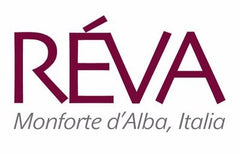
Réva is a winery based in Monforte D’Alba, within the Langhe area, in Piedmont, west northern Italy. Its aim is to bring the most brilliant young people of the area together, entrusting them with the task of expressing themselves in the most creative and professional way possible. This is Réva’s Wave, a dynamic team that represents the new Langhe generation, in constant communication with tradition, without the fear of reinterpreting it.
Today the vineyard sites which spread over 4 villages, Monforte D’Alba, Serralunga D’Alba, Novello and Barolo are all managed directly with the entire agronomic work done manually. Strong sustainable vineyards conduction, certified organic, they believe that their biggest challenge is not inventing anything but just define and express the beauty of the land where they live.
Behind every glass of wine there is an expression, expression of terroir, varietal, the varietal is for them everything, indigenous, they speak of the land and, last but not least, passion for what they do. Simply as that.
Press Reviews
Wine Align
92 points (2022) - Michael Godel
The name is Grey, representative three ways, of Réva’s Bianco label, the earth as its life giver and a sauvignon blanc meeting sauvignon gris growing from the Langhe “formation lequio.” In other words ancient Serravallian terroir come into being some 12 million years ago. Translates today as clay, limestone and fossil, adding up to and defined as grey marl. Just smells like wet stones, rich in mineral, as if after a rain. A place where ripeness means abundant and substantial fruit in cohorts with and defending the “sottosuolo” of elements below to do more than merely simulate but actually effect an authentic Langhe experience. Drink 2025-2030. Tasted May 2025
91 points (2022) - David Lawrason
This is a blend of sauvignon blanc and sauvignon gris - a highly unusual wine for the Langhe region, but a specialty of the youthfully re-imagined Reva estate in Montforte. It is an impressive, full flavoured, generous and well balanced wine with lifted aromas of guava/lychee, lemon and fresh herbs. It is very bright with lively acidity, considerable warmth and juicy, tart-edged finish. The length is excellent. A bit aggressive in the end so chill well. Tasted May 2025
91 points (2022) - John Szabo, MS
Réva's Langhe Bianco "Grey" is composed of 70% Sauvignon Gris and 30% Sauvignon Blanc, related but considered separate varieties, the former less effusively aromatic than the blanc version. It pours a pale-medium yellow gold colour, and offers maturing, bruised pineapple and binned apple aromatics in an advancing style, purposely no doubt considering Réva's commitment to natural winemaking and low intervention. It's also notably herbal, like dried mint or cold mint tea, fresh celery and other non-fruity components on a fairly rich and full-bodied frame with palpable extract - tannins - that provide some grip. Despite the advancing flavours, I'd recommend another year or two in the cellar for the palate to smooth out, and since it's not about the fruit in any case, those flavours will continue to develop in the savoury spectrum. Length is very good. Tasted May 2025.
- White Wine
- Chardonnay
- Sustainable, Vegan-Friendly
- Dry
- Medium Bodied
- 750ml
- 13% alc./vol
About the Winery
The Farm

“The Farm” is a 10-acre vineyard in Niagara’s Twenty Mile Bench, planted to Pinot Noir. The Neudorf vineyard was originally planted with Pinot Noir in 2000 for Le Clos Jordanne and aptly named “La Petite Colline”, meaning “little hill”, a nod to the gentle slopes that permeate the plot.
The property is rooted in traditions of gathering family & friends, and where Peter and Dora Neudorf call home. The cellar door opens once a year for guests to taste new releases, and enjoy live music and local food.
- White Wine
- Sauvignon Blanc
- Natural, Sustainable, Vegan-Friendly
- Dry
- Medium Bodied
- 750ml
About the Winery
Grains d'Estuaire
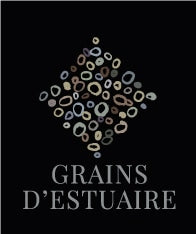
Julien Bonneau, (Château Haut Grelot in the Blayais), and his friend Alexandre Lavigne, restaurateur in Saint-Palais-sur-Mer, created in 2014 a range of wines, Grains d'Estuaire, from 'a 10 ha vineyard located in Saint-Bonnet-sur-Gironde, in the south of Charente-Maritime.
- Red Wine
- Carignan, Cinsault, Grenache, Grenache Blanc, Roussanne, Syrah, Vermentino
- Sustainable, Vegan-Friendly
- Dry
- 750ml
About the Winery
Domaine Frédéric Brouca

Frédéric grew up in Normandy and met his Canadian wife Elaine at university in Lille, Northern France. They live a nomadic lifestyle (Canada, India, Singapore and USA) though Frédéric spends about half of his time in Faugères. Since early age, Frédéric had a calling for farming and the fierce desire to become a winegrower. After completing a Masters Degree in Finance in 2001, Frédéric went back to college for a Sommelier diploma and started his career as a Burgundy wine broker.
In late 2012, Frédéric and Elaine were fortunate to take over 25 acres of old vines in Faugères, organically farmed for twenty years and deeply rooted in schist soils.
2013 was the inaugural vintage for Domaine Frédéric Brouca. In his modest winery in the village of Laurens, Frédéric is creating a new vision for Faugères wines; fresh, vibrant and made without artifice. Nothing revolutionary, simply returning to our grandparent's ideology of farming and winemaking to craft 'Vins Vivants'. The Faugères Appellation is in the heart of Languedoc in the Hérault department. Here, winemaking dates back to the Greek times and was developed during the Roman Era. It wasn't until the early 1900's, however, that the wines became more widely known for its unique schist soils and moderate Mediterranean climate. These villages are heavily reliant on wine as an important part of their culture and economy.
The area is stunning with mountain views and close proximity to the Mediterranean Sea (20 miles / 30 kms). Faugères has a long history of responsible farming. It boasts the highest percentage of organic vineyards for any AOC in all of France with almost 50% of farmers making the choice.
- Red Wine
- Grenache
- Natural, Sustainable, Vegan-Friendly
- Dry
- Full Bodied
- 750ml
- 13.8% alc./vol
About the Winery
Bodegas Puiggròs
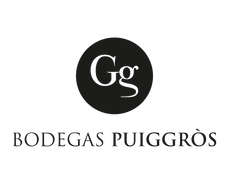
Since 1843, the Puiggros family has been producing wines from their own vines in the Odena region of Catalunya for the family and close friends. Over generations they had come to realize that their vineyards and techniques were something worth sharing with the world. A sincere dedication to the terroir in their zone and the indigenous varieties that grow there, allows them to constantly discover ways to unlock all of the magic that lies within their land.
Starting with conscious and clean farming in the vineyard, they hand-harvest only the best fruit for their production, and ferment each vineyard separately in varying vessels to accentuate what the vines have to show; some in stainless steel, and many in clay amphora of differing sizes. All the while seeing very little sulfur use (if any) until bottling. Puiggros is pushing the quality of northeastern Spain's wines forward, and doing so in a clean and unique way.
Press Reviews
WineAlign
91 points - David Lawrason
Exedra Negre is 100% Garnatxa (Catalan for grenache) planted on limestone and clay soils at 500 meters. Part is fermented in large concrete, part in amphora. It pours fairly pale but bright ruby. The aromas are classic grenache strawberry jam with fine, subtle array of tobacco, pepper and herbs in the background. It is medium weight, fresh, balanced and almost refined - not really showing its 14.5% alcohol except for a slight kirsch flavour to the fruit on the finish. The length is excellent. Chill a bit. Tasted January 2026.
91 points - Michael Godel
Warm vintage for garnatxa aged in clay-pot (amphora) from Odena’s limestone and clay soils at 500m in the shadow of the Montserrat massif. Consistent sweet red candied fruit aroma, always alluring and quite naturally so. The amphora does not take over the character but seems to simply allow the land to do the talking. Drink 2026-2029. Tasted January 2026.
90 points - John Szabo, MS
Pure grenache vinified and aged in amphora, the wine shows oxidative aromatics, candied/dried fruit and shoe polish, more advanced than one would hope for at this relatively young age. The palate is nonetheless, silky-smooth and broadly appealing, soft and round as it is, generous without heaviness. I like the saline nature that encourages another sip and brings the fruit and wild herb flavours into sharper relief. Acids are equally helpful in framing the ensemble. In the end it works nicely; drink over the near term to capture the fading freshness. Tasted January 2026.
- Rosé Wine
- Nerello Mascalese
- Sustainable, Volcanic
- Dry
- Light Bodied
- 750ml
- 12.5% alc./vol
About the Winery
Azienda Agricola Tornatore
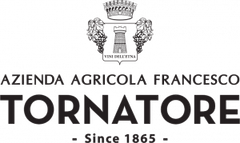
Out of a Sicilian family heritage that traces back to the 17th century, the Tornatore’s Mount Etna wine ventures began in 1865. Today the family’s operations are headed by Giuseppe Tornatore, a businessman whose expertise led to the acquisition of some of the region’s finest north-facing vineyards in the early 2000’s. That heritage and the Tornatore’s profound respect and understanding of the land is showcased in wines that capture the essence of Etna, deftly balancing concentrated flavors, complexity, freshness and refinement.
The company lies in the northern side of Mount Etna, the highest active volcano in Europe. The soils have volcanic origin and were created through the disintegration of lava, ash and stones from previous volcanic eruptions. The climate on the northern side of the Etna is characterized by mild temperatures, and more rain fall reflecting the influence of the Volcano. The combination of soil, climate and the skill of the winemakers, have made the northern slope of Etna an ideal area for the production of high-quality wines. “Our vineyards and our winery are only a few kilometers from our family home. Our entire family is rooted there. We have the greatest respect for this region, and we believe we have a responsibility to be stewards of Etna and to reflect its distinct character in our wines.” - Giuseppe Tornatore
Press Reviews
WineAlign
92 points (2021) - Michael Godel
This nerello mascalese Rosato could never be accused of acting out a lean and pale Provençal play but at first look could be imagined as another French style, that being Tavel. Candy apple or Bing cherry hued and clearly destined to live a life of fleshy, pulpy and gloriously textured fruit. Direct pressing and no maceration brings about all the red fruits imaginable, including something akin to northerly Italian Corbezzolo fruit, here in flavours like a cross between a strawberry and a watermelon. Delectable stuff with streaks of basaltic salinity and botanical herbs. Wild ones, like fennel, ferula and floral ginestra. Drink 2023-2025. Tasted June 2023.
- Red Wine
- Nebbiolo
- Biodynamic, Natural, Organic, Vegan-Friendly
- Dry
- Medium Bodied
- 750ml
- 14% alc./vol
About the Winery
Punset

While the vineyards that form Punset have been farmed by the Marcarino family for generations, it is truly thanks to Marina and her incredible energy that the estate is how it is nowadays. In the 1980s, she decided to pursue organic farming – a demanding choice that was rewarded by becoming the first estate to receive the organic certification in Italy. Her passion for the soil and the environment led her to embrace biodynamics and the agronomic philosophy of Manasobu Fukuoka. From one of the healthiest vineyards in Italy, Marina crafts wines that brim with life, energy, and pure terroir.
Known for the very first certified organic Barbaresco of Italy, Marina continues to show the world that you can preserve tradition and think of the future simultaneously.
Press Reviews
James Suckling
92 points
This is tasting beautifully now with strawberry, cedar, and hazelnut character. It’s medium-bodied with firm tannins that need to soften. But very pretty already. Drinkable now, but better in two or three years. Try after 2024.
Wine Enthusiast
90 points
Blue flower, underbrush and wild herb aromas mix with a whiff of tobacco. Racy and linear, the palate offers sour cherry, star anise and a hint of rusted iron alongside taut, close-grained tannins that leave a drying finish.
WineAlign
94 points (2019) - Michael Godel
Lovely nebbiolo built on substantial fruit, fluidity, ease, calm and a well structured frame. A beautiful Barbareso from Neive that has already resolved quite dutifully and is just about ready to drink with philanthropy in the proverbial window. Steady and graceful, a very charming wine that everyone needs to know. Drink 2025-2032. Tasted blind at Nebbiolo Prima January 2024.
- Red Wine
- Syrah
- Biodynamic, Natural, Organic, Vegan-Friendly
- Dry
- Medium Bodied
- 750ml
- 12.5% alc./vol
About the Winery
Domaine du Coulet - Matthieu Barret
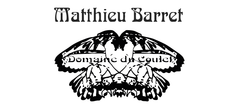
Matthieu Barret was born in Aix-en-Provence in 1975 and studied viticulture in Beaune.
He is the 7th generation vigneron and joined his grandfather in Cornas in 1997. Previously, his family had only been farming and selling grapes. He practices biodynamic viticulture, obtaining very low yields (23 hl/ha) and extraordinary quality. He describes his wines as being 100% grape, with a very low sulphite addition. His wines are extremely clean, and, true to the Cornas character. Domaine du Coulet was founded by Matthieu Barret’s grandfather after WWII, and over the years has supplied grapes to some of the best known producers in the Northern Rhône, including Chapoutier and Delas. While his father eschewed the agrarian lifestyle, opting instead for a career in international business, Matthieu knew early on that he wanted to be a vigneron. In 1998 at the age of only 23, he took over the family’s 25 acres of well-situated vines on the terraced hillsides of Cornas.
From the beginning, Matthieu has employed natural, organic practices and by 2002 (his second year of production) the domaine received its biodynamic certification. With each vintage, Matthieu has gained a better understanding of his vine parcels and through thoughtful experimentation, he now turns out a remarkable selection of Cornas wines that express the unique nuances of each micro-terroir. No new oak, no racking, minimal use of sulfur and no fining or filtration. Pure, sexy Syrah.
- Red Wine
- Tempranillo
- Sustainable
- Dry
- Residual Sugar: 1 g/l
- 750ml
- 13.55% alc./vol
About the Winery
Bideona
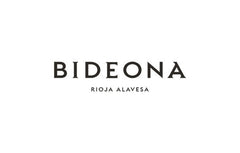
Bideona owns or manages over 300 parcels of extraordinary vines in villages throughout the Rioja Alavesa, the coolest, smallest and most Atlantic sub-zone of Spain’s most famous wine region.
The vineyards of the Rioja Alavesa are defined by parcels of old bush vines planted on terraces or hillside slopes with a high percentage of limestone. Located in the foothills of the Sierra Cantabria, Bideona’s vines have an average age of 50 years and many were planted in the 1920s, 30s and 40s, before high-yielding clones became available.
Bideona puts the focus firmly on terroir by making each wine in its Vino de Pueblo range as a field blend of Tempranillo and other native varieties from plots in an individual village. Each is named with an acronym – L3Z4 for Leza, L4GD4 for Laguardia, S4MG0 for Samaniego and V1BN4 for Villabuena – owing to DOCa Rioja regulations that only allow village names to be marked if both the winery and the vineyard are in the same location.
“Bideona’s reason for existence is to make wines that show the personality of the Rioja Alavesa and its historic wine villages” states company co-founder and director, Andreas Kubach MW. “We have access to a wealth of diverse plant material in our parcels of old vines, which we believe contributes to the complexity of the wines as well as the differences between villages.”
Press Reviews
WineAlign
91 points - Megha Jandhyala, S.J.D., DipWSET.
With its open, unassuming, and unguarded personality, this wine is a lovely entry-point into Biedeona's portfolio. I love the bright fruit flavours, red and dark, resinous herbs, wildflowers, and hints of pepper depicted here. The palate is medium bodied, with supple acidity and balanced, firming tannins. An herbal note lingers on the finish, closing off the delightfully expressive palate. I would enjoy this modern Rioja now or over the next couple of years in order to benefit from its youthful charm. Tasted January 2026.
90 points - Sara d'Amato
Crisp with delicate floral aromatics, this wine shows the cool, higher-elevation “Alavesa” character, but with greater weight at 14% alcohol. Notes of violet, cherry, raspberry leaf, and pink peppercorn add charm. Juicy, youthful, and effortlessly stylish, both in the glass and in its packaging. Intriguing, satisfying - a not-so-guilty pleasure. Tasted January 2026.
- Orange Wine
- Ribolla Gialla
- Biodynamic, Natural, Organic, Vegan-Friendly
- Dry
- Medium Bodied
- 750ml
- 12% alc./vol
About the Winery
Štekar
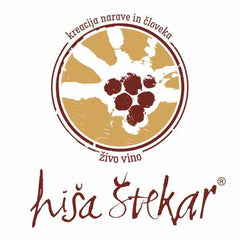
The Štekar family has been growing grapes in Goriska Brda since 1985. With 6 acres of vines planted in the stunning hills of western Slovenia, along with cherry orchards, Jure Štekar has committed to make wine the way his grandfather Emil taught his father: respecting tradition and avoiding invasive technologies.
Certified organic since 2006, Jure likes to play with long macerations, spontaneous fermentations and tiny SO2 amounts. His goal is to produce genuine wines that tell the story of his land and family.
Press Reviews
Jancis Robinson
17.5
Deep gold, pungent, punchy. A fickle nose that catches a flicker of Roman drains one moment and then floods the two feet above the glass with orange blossom and quince. So salty your mouth will pucker and then you get the sweetness and citrus oils and herbal bite. It's twists and twists of clementine peel and tangerine and sweet lime. It's oregano and kumquat, pink salt and sour cream. It's punky, silk-and-handcuffs, addictive. Jure Štekar's wines get more and more beautiful every year.
- White Wine
- Chardonnay
- Sustainable, Vegan-Friendly
- Dry
- Medium Bodied
- 750ml
- 13% alc./vol
About the Winery
Leaning Post
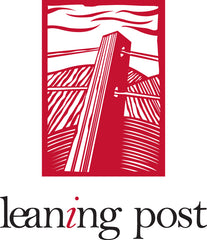
A leaning post is what you find at the beginning of a row of grapes, anchoring the wires that are the frame-work for growing grapevines. It is the beginning of an obsession to translate a time and place into liquid. Leaning Post wines take you to that beginning by finding small, unique plots of land in Niagara and putting them in bottle. Because after stripping away all the fancy buildings and high-tech equipment you are left with a place on this earth that grows wine unlike any other. When you taste that in a glass you just know it. Nadia and Ilya have had to rely on the support of family, friends and financial institutions to make the dream of owning a winery a reality. Leaning Post began as a virtual winery and is so proud to now have the quaint tasting room at 1491 Hwy 8 on their home property in Winona, Ontario.
Ilya and Nadia are the brains and passion behind Leaning Post Wines. It started with a dream to take unique, interesting single vineyard blocks in Niagara and turn them into distinctive, terroir driven wines. Nadia and Ilya first met in their hometown of Winnipeg, MB where their passion for wine and each other was born.
Ilya has been a winemaker in the Niagara Region for the last 17 vintages working at Daniel Lenko Estate Winery, Foreign Affair and now at Leaning Post Wines. Ilya is also a consulting winemaker at the Good Earth Winery. Ilya’s true passion in life is to make world renowned wines from Niagara that really showcase the distinct terroir that Niagara offers.
- White Wine
- Arneis
- Biodynamic, Natural, Organic, Vegan-Friendly
- Dry
- Medium Bodied
- 750ml
- 13.5% alc./vol
About the Winery
Punset

While the vineyards that form Punset have been farmed by the Marcarino family for generations, it is truly thanks to Marina and her incredible energy that the estate is how it is nowadays. In the 1980s, she decided to pursue organic farming – a demanding choice that was rewarded by becoming the first estate to receive the organic certification in Italy. Her passion for the soil and the environment led her to embrace biodynamics and the agronomic philosophy of Manasobu Fukuoka. From one of the healthiest vineyards in Italy, Marina crafts wines that brim with life, energy, and pure terroir.
Known for the very first certified organic Barbaresco of Italy, Marina continues to show the world that you can preserve tradition and think of the future simultaneously.
Press Reviews
Wine Align
90 points (2018) - Michael Godel
Next stage complexity emerges from this extraordinarily ulterior half and half white from Marina Macarino’s Domaine Punset in Barbaresco. Get your disco dancing shoes on with a glass of this sweet nectar, dry as the Neive hills and ready to rock.
Ne’? is the “Piedmontese” way of ending a sentence, like ‘eh in Canada. A 50-50 arneis and favortita mix, salt missive over fruit and extremely fresh. The aperitíf white that connects dialectal territory with those in the diaspora that want a taste.
- Red Wine
- Pinot Noir
- Sustainable, Vegan-Friendly
- Dry
- Light Bodied
- 750ml
- 12.5% alc./vol
About the Winery
Leaning Post

A leaning post is what you find at the beginning of a row of grapes, anchoring the wires that are the frame-work for growing grapevines. It is the beginning of an obsession to translate a time and place into liquid. Leaning Post wines take you to that beginning by finding small, unique plots of land in Niagara and putting them in bottle. Because after stripping away all the fancy buildings and high-tech equipment you are left with a place on this earth that grows wine unlike any other. When you taste that in a glass you just know it. Nadia and Ilya have had to rely on the support of family, friends and financial institutions to make the dream of owning a winery a reality. Leaning Post began as a virtual winery and is so proud to now have the quaint tasting room at 1491 Hwy 8 on their home property in Winona, Ontario.
Ilya and Nadia are the brains and passion behind Leaning Post Wines. It started with a dream to take unique, interesting single vineyard blocks in Niagara and turn them into distinctive, terroir driven wines. Nadia and Ilya first met in their hometown of Winnipeg, MB where their passion for wine and each other was born.
Ilya has been a winemaker in the Niagara Region for the last 17 vintages working at Daniel Lenko Estate Winery, Foreign Affair and now at Leaning Post Wines. Ilya is also a consulting winemaker at the Good Earth Winery. Ilya’s true passion in life is to make world renowned wines from Niagara that really showcase the distinct terroir that Niagara offers.
- Red Wine
- Cabernet Franc, Carignan, Grenache, Merlot
- Natural, Vegan-Friendly
- Dry
- Medium Bodied
- 750ml
About the Winery
Celler Escoda-Sanahuja

Joan Ramón Escoda founded Celler Escoda Sanahuja in 1999 along with his wife Mari Carmen in Conca del Barbera, Catalonia. Since then, they have been disrupting the wine industry both in their home-country and internationally.
Celler Escoda Sanahuja was one of the first wineries that, back in 2005 stopped adding sulphites to their wines. Joan Ramon has always been a radical winemaker and a grass-roots innovator. His wild enthusiasm has been fuel for the natural winemaking scene, and has also led him to, spontaneously, create the 'Brutal' movement popular in natural wine circles. These are highly individual wines reflecting their origins and their innovative winemaker.
- Red Wine, White Wine
- Chardonnay, Pinot Noir, Trousseau
- Sustainable, Vegan-Friendly
- Dry
- Medium Bodied
- 750ml
About the Winery
Domaine Baud Père et Fils

The history of Domaine Baud dates back to 1742, and it wasn't until 1950 when René Baud, the 7th generation, rebuilt the vineyard which had suffered from the phylloxera crisis and two World Wars.
Starting with only 4 hectares, the vineyard progressively expanded to 20 hectares with the help of successive generations. Now, managed by siblings Clémentine and Bastien, the 9th generation, the estate continues to flourish and grow, with a strong commitment to sustainable viticulture and preserving the traditions and style that makes the wines of the Jura so unique and incredible.
The estate achieved the Terra Vitis certification in 2014 for its eco-friendly work and environmental preservation.
- White Wine
- Gouveio, Viosinho
- Sustainable
- Dry
- Medium Bodied
- 750ml
- Red Wine
- Cinsault
- Natural, Organic, Vegan-Friendly
- Dry
- Full Bodied
- 750ml
- 13.5% alc./vol
About the Winery
Domaine Frédéric Brouca

Frédéric grew up in Normandy and met his Canadian wife Elaine at university in Lille, Northern France. They live a nomadic lifestyle (Canada, India, Singapore and USA) though Frédéric spends about half of his time in Faugères. Since early age, Frédéric had a calling for farming and the fierce desire to become a winegrower. After completing a Masters Degree in Finance in 2001, Frédéric went back to college for a Sommelier diploma and started his career as a Burgundy wine broker.
In late 2012, Frédéric and Elaine were fortunate to take over 25 acres of old vines in Faugères, organically farmed for twenty years and deeply rooted in schist soils.
2013 was the inaugural vintage for Domaine Frédéric Brouca. In his modest winery in the village of Laurens, Frédéric is creating a new vision for Faugères wines; fresh, vibrant and made without artifice. Nothing revolutionary, simply returning to our grandparent's ideology of farming and winemaking to craft 'Vins Vivants'. The Faugères Appellation is in the heart of Languedoc in the Hérault department. Here, winemaking dates back to the Greek times and was developed during the Roman Era. It wasn't until the early 1900's, however, that the wines became more widely known for its unique schist soils and moderate Mediterranean climate. These villages are heavily reliant on wine as an important part of their culture and economy.
The area is stunning with mountain views and close proximity to the Mediterranean Sea (20 miles / 30 kms). Faugères has a long history of responsible farming. It boasts the highest percentage of organic vineyards for any AOC in all of France with almost 50% of farmers making the choice.
Press Reviews
Wine Align
92 points (2021) - Michael Godel
Samsó Seulle is varietal cinsault from 40-plus year-old bush vines on the 'La Serre' hill in Faugères. At the higher end for whole cluster ferments in the Fréderic Brouca range, here at 70 percent. Samsó is the local name for the grape and Brouca goes gentle and slow in his trenchant intention on how to deal with extracting without shock and awe. The grapes and thus the wine come out soft and “glissement,” even while the swarthy volatility runs knowably high. Brettanomyces yeasts are simply, allegedly and unequivocally part of the fabric but because flavours and textures are so pretty there is no chance of brittle or crumbly tannins. And so the overall effect is good, generous and proper. At least once in your lifetime your vinous imperative is to try a wine like this, especially from Brouca. Drink 2024-2028. Tasted January 2023.
92 points (2021) - Sara d'Amato
Named "Samsó" the local name for cinsault (and phonetically very similar), Brouca's fruit is sourced from organically grown, old vine cinsault that is over 40 years of age. Often vinified with a good deal of whole-cluster giving the wine its necessary grip and then slowly matured in neutral vessels to preserve the varietal character. There is more wildness in this cuvée than many of Brouca's others, with a palate that is brimming with dried earth, wildflower, and fresh herbs, along with a touch of mushroom and musk. A notably pure expression of grape variety and features the concentration one might expect from a low-yielding drought vintage. Notes of cherry, fennel and licorice root permeate the finish of very good length. Best now to 2028. Tasted January 2024.
91 points (2021) - David Lawrason
This is an organically grown single vineyard cinsault, a variety making paler, red fruited wines. It has a distinctive, soft ripe nose of strawberry jam, very floral lilac/peony, a touch of char and earth. There is also some meatiness expressed more on the palate. It is medium bodied, supple, warm and generous with slightly gritty tannin. Excellent fruit concentration and length. Tasted January 2024
90 points (2021) - John Szabo
Pure old vine cinsault (aka samsó) from the south of France, organically farmed and handled minimally, Brouca latest 2021 is a typically wild and vibrant, crunchy and juicy red declared at just 12.5% alcohol, part philosophy, part cooler, wetter vintage no doubt, and all the more lively for it. The palate is notably gritty with light but angular tannins bouncing off tingly acids, containing a mouthful of tart red fruit, from red currant to sour cherry, free from oak influence, but featuring lots of wild savoury herbs and twiggy flavours. The finish lingers surprisingly for such a light wine. Chill lightly and serve over the next 2-4 years. Authentic and honest; I like the lift and transparency. Tasted January 2024.
- Red Wine
- Malbec
- Sustainable, Vegan-Friendly
- Dry
- Full Bodied
- 750ml
- 13% alc./vol
About the Winery
Château Lamartine
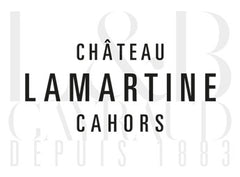 The Château Lamartine stands at the extremely west side of the Cahors Appellation, on the oldest of Lot Valley’s terraces. The terroir of the 37 hectares faces South on clay and limestone soils which guarantees a perfect maturity to the Malbec.
The Château Lamartine stands at the extremely west side of the Cahors Appellation, on the oldest of Lot Valley’s terraces. The terroir of the 37 hectares faces South on clay and limestone soils which guarantees a perfect maturity to the Malbec.For four generations, the Gayraud family has given the greatest care to the vines as well as the wine-making. This is the key to get the purest expression from the terroirs.
Press Reviews
Wine Align
92 points (2018) - Michael Godel
The 2018 “Tradition” bottling represented Cahors with good distinction and from first nose this follow-up ’19 takes that excellence one step further. Not that it gives anything away for free because there is some reserve here but the wine opens with air and agitation to reveal classicism in every respect. The fruit is mature and slow developed, ever so slightly charred and surely on a low trajectory of incrementally developing complexity. Cautious now and yet so close to drinking as well it it’s ever going to be. Drink 2024-2028. Tasted March 2023.
91 points (2018) - John Szabo
Open and fragrant, maturing nicely at this stage, Lamartine's classic Cahors (90% malbec with 10% merlot), is a lovely and succulent wine, well-proportioned and fresh, with lively acids and a real limestone twang. Wood is fully in the background, an accessory to complexity, while tannins are ripe, fine and silky and length is exceptional in the price category. Classy, well made wine, authentic, and surely better than most Bordeaux for the money. Drink or hold another 4-6 years. Tasted March 2023.
- White Wine
- Chardonnay
- Dry
- 750ml
About the Winery
Domaine Louis Moreau

Winemaker Louis Moreau is the master of the Chablis terroir, where he bottles 100% Chardonnay wines from all four levels of appellation: Petit Chablis, Chablis, Chablis Premier Crus and Chablis Grands Cru.
The Domaine owns parcels in five of the seven Grands Cru climats, and works with many plots throughout the region in a sustainable manner. The most prestigious of its wines is the monopole Chablis Grand Cru 'Clos des Hospices' dans Les Clos AOC 2016, acquired by the Moreau family in 1904.
Louis Moreau, who has been leading the domaine since 1994, produces wines with a unique style. Louis Moreau studied oenology-viticulture at Fresno State University and worked at different Californian wineries before he took over the Domaine's operations in 1994, representing the family's sixth generation of vignerons.
Press Reviews
WineAlign
92 points (2022) - David Lawrason
This is a lovely, bright and quite fulsome Chablis with lifted aromas of yellow apple/pear, lemon blossom and a subtle lactic parmesan note I often find in Chablis. It is medium weight, fresh yet rounded and warming, with a narrow, drying, mineral finish. The length is excellent. Very reflective. Tasted April 2024
92 points (2022) - John Szabo, MS
Here's a very pretty, floral, white and yellow spring flower-inflected Chablis in the classic idiom, ripe but still cool and northern, with elegance and sophistication on offer. This is textbook, stony and succulent stuff, a feat to achieve in this warm vintage. Length and depth are excellent. A grand success for 2022 I'd say, best now-2028 or so. Tasted April 2024.
91 points (2022) - Michael Godel
Always the Moreau Chablis from the “other side,” of a more luxurious profile while the Chablis without lieu-dit addendum rises with greatest freshness. That one is also crisp with textural glide while Domaine de Biéville is a full mouthful, mature, exotic and teasing late harvest honeyed material. Hard to imagine this could make the other seem austere and sharp by comparison but the ripeness and development in this Biéville is off the charts. Drink now and soon with rich or fatty fish preparations elevated with acidity. You will need the gras and the zest to make it all work. Drink 2024-2026. Tasted April 2024.
90 points (2022) - Sara d'Amato
From Biéville's sunny site, made in a warmer vintage, this ripe and mouth-filling style of Chablis is not exactly classic. Notably concentrated, mineral, and brimming with stonefruit, yellow apple, and a toasted leesy character. Ample and satisfying but I wanted more finesse and complexity for the price. Tasted April 2024.
- Red Wine
- Pinot Noir
- Sustainable
- Dry
- Residual Sugar: 3.00 g/l
- Medium Bodied
- 750ml
- 13.00% alc./vol
About the Winery
Groupe Bellene
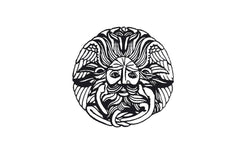
Led by Nicolas Potel in Beaune, Groupe Bellene is composed of the négociant arm Maison Roche de Bellene, the winery arm Domaine de Bellene, and a special back-vintage series under the Collection Bellenum label.
- Maison Roche de Bellene offers a complete range of wines, with an emphasis on individual terroirs from old vines of more than 40 years. All of the growers that Nicolas works with are either organic certified or sustainably farmed.
- Domaine de Bellene represents the wines that are produced and bottled from Nicolas Potel's private vineyard holdings.
- Collection Bellenum is a back vintage series that Nicolas Potel sourced from his friends in the region, offering a magnificent selection of bottled history. The wines have moved only twice in their lives, from the original cellar to Potel's and now to yours!
Nicolas Potel grew up at Volnay's Domaine Pousse d'Or, where his father worked. He trained abroad and returned home in 1996 to build a négociant business and started Maison Nicolas Potel, where he sourced grapes from good parcels, often working with the growers to improve the quality. By 2002, he was making 120 wines from 50 different appellations, and the rest is history!
Press Reviews
WineAlign
90 Points - David Lawrason
This is a fairly pale, light and tender pinot noir that is nicely balanced, typical and complete. The nose captures fairly generous red cherry nicely suffused with light spice, red rose and forest floor. It is light bodied, quite smooth and elegant with slightly crusty tannin and some heat. Very good to excellent length. Best now to 2023.
- White Wine
- Sauvignon Blanc
- Organic
- Dry
- 750ml
About the Winery
Domaine de la Garenne
Rooted in the hills of Verdigny for generations, the Godon-Reverdy family has always worked this land — first in service to the Lords of Verdigny, then the cathedral of Bourges, and finally for themselves. The slopes, trees, and fields have shaped the winery's identity, walked by the parents, grandparents, and great-grandparents before them. It was after World War II that their great-grandfather, Amédée Reverdy, became a winemaker — not by plan, but by providence and a fateful draw of the short straw. Since then, each generation has built on that legacy.
Today, Domaine de la Garenne cultivates 12.5 hectares across 37 carefully managed plots in the Sancerre AOC, a renowned Centre-Loire appellation recognized since 1936 for whites and 1959 for reds and rosés. They grow Sauvignon Blanc and Pinot Noir, producing dry white, red, and rosé wines shaped by the region's oceanic climate and diverse soils. Their vineyards span three key soil types: Caillottes (chalky and vibrant), Clay-siliceous (flinty and mineral), and Terres Blanches (rich clay-limestone offering fruit and length). Embracing organic and biodynamic practices, they are committed to working in harmony with nature, letting each terroir express itself fully in the wines. In a region of 366 passionate winegrowers and 2,999 hectares under vine, the estate remains a proud family story — one of heritage, resilience, and a profound love of the land.
Press Reviews
WineAlign
93 points (2023) - David Lawrason
This is a generous, tidy and textbook Sancerre hitting all the right notes for sauvignon blanc from this famous upper Loire appellation. The nose is just generous enough to transmit classic grapefruit, nettle, mineral and green pear fruit. It is light to medium bodied, delicate yet fairly taut with a touch of warmth (13% abv). The finish is dry and nicely chalky mineral. The length is excellent. Very cohesive. Price is a bit of a bump but still a value proposition. Tasted May 2025.
93 points (2023) - Michael Godel
Straight from the Sancerre handbook with all three essential soils below and behind a most righteous and ultra correct white wine. Predominantly Caillottes calcaires (72 percent) with Terres Blanches argilo-calcaires (20) and Silex (8) for tripartite sauvignon blanc based on treble, like sounds and instruments that emphasize the high-frequency range of Sancerre audio-ness, played to our palates in brightness, clarity and detail. The terroirs are like violins, flutes, and cymbals, the range of flavours a sibilance in vocals. Top shelf soil, sound and vision from the Alliance. Drink 2025-2031. Tasted May 2025.
92 points (2023) - John Szabo, MS
This is a lovely, well-balanced and even-keeled Sancerre with evident ripeness and depth but also a ballast of acids and no shortage of freshness, including a point of bitterness that really draws things together and extends the finish admirably. There's also plenty of stones to keep the terroir purists happy, indeed leading the way over subtle limey fruit with a lick of clover honey, the light, fresh, green kind. A delicious wine in the final analysis, best from 2026. Tasted May 2025.
- Orange Wine
- Albariño
- Sustainable, Vegan-Friendly
- Dry
- 750ml
About the Winery
Peninsula Vinicultores

Península Vinicultores was founded by two Masters of Wine: Andreas Kubach MW, leads production and Sam Harrop MW directs viticulture. Andreas, raised in Brazil and Spain by German parents, and Sam, a native New Zealander, bring a new-wave, international perspective to the Spanish wine landscape. Andreas believes that in the past century, and notably post-industrialization, Spanish producers have prioritized wines of style, focusing on winemaking and aging, rather than wines of place. This creates what he calls a “ceiling of interest” for terroir. Inspired to change this narrative, he is focusing on small, old-vine plots all over Spain that were either formerly abandoned or are at risk of being ripped out for to plant more lucrative cash crops. The wines also champion local, indigenous varieties traditional to their respective regions and best express site.
- Red Wine
- Grenache, Syrah
- Sustainable, Vegan-Friendly
- Dry
- Residual Sugar: 3.00 g/l
- Medium Bodied
- 750ml
- 14.50% alc./vol
About the Winery
Domaine Andre Aubert
At the very heart of the Rhône Valley, at the northerly tip of the Southern Rhône, lie the vineyards of Grignan-Les-Adhémar. The chances are you haven’t heard the name before, few people have, but the wines are worth seeking out. It’s not a new wine region – vines have been planted here since around 500BC but it is a new name (formerly known as Côteaux-du-Tricastin). Domaine André Aubert, has been formed over decades and today comprises of more than 280 hectares spread from north to south of the prestigious Southern Rhone Valley on the appellations Côtes du Rhône, Côtes du Rhône villages, Visan, and Grignan-les-Adhémar.
Press Reviews
James Suckling
90 Points
A medium-bodied red with blackberries, currants, herbs and baking spices on the nose. Fine tannins with a juicy core of berries and peppercorns on the palate and a flavourful finish. Grenache, syrah and mourvedre. Drink now.
- Orange Wine
- Chenin Blanc, Macabeo
- Natural, Vegan-Friendly
- Dry
- Medium Bodied
- 750ml
- 12% alc./vol
About the Winery
Celler Escoda-Sanahuja

Joan Ramón Escoda founded Celler Escoda Sanahuja in 1999 along with his wife Mari Carmen in Conca del Barbera, Catalonia. Since then, they have been disrupting the wine industry both in their home-country and internationally.
Celler Escoda Sanahuja was one of the first wineries that, back in 2005 stopped adding sulphites to their wines. Joan Ramon has always been a radical winemaker and a grass-roots innovator. His wild enthusiasm has been fuel for the natural winemaking scene, and has also led him to, spontaneously, create the 'Brutal' movement popular in natural wine circles. These are highly individual wines reflecting their origins and their innovative winemaker.
- White Wine
- Sauvignon Blanc
- Sustainable
- Dry
- Residual Sugar: 6.00 g/l
- Medium Bodied
- 750ml
- 13.00% alc./vol
About the Winery
Invivo

Invivo's journey began when two Kiwi friends, Rob and Tim, met in a London bar, determined to revolutionize the wine industry by creating a strong brand that defies tradition. Since 2008, Invivo has become a leading producer in New Zealand, winning over 600 medals and expanding operations across several countries. Through customer focus and innovation, including being one of the Southern Hemisphere's largest crowdfunded companies, Invivo has rapidly grown. Rejecting traditional winemaking norms, Invivo brings elegance from the old world to their original range, featuring Sauvignon Blanc, Pinot Gris, Chardonnay, Pinot Noir, and Rosé. Their collaborations with Graham Norton and Sarah Jessica Parker have further elevated their profile, embodying Invivo's vision of bringing people together to create greatness.
Press Reviews
Wine Orbit
94 Points - Sam Kim
It's gorgeously aromatic on the nose, showing kiwifruit, fig, crunchy apple and lime zest characters, followed by a juicy palate that's punchy and tasty. Brilliantly expressed with loads of youthful fruit flavours, making it highly appealing. At its best: now to 2027.
- White Wine
- Chenin Blanc
- Sustainable, Vegan-Friendly
- Dry
- Residual Sugar: 2.00 g/l
- Medium Bodied
- 750ml
- 12.50% alc./vol
About the Winery
Radford Dale
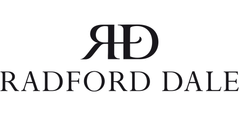
Radford Dale and The Winery of Good Hope are two brands made by the same people, in the same winery. The team behind these wineries has been an industry leader since the 1990s in chemical free farming, and more recently in low and no sulfur winemaking. They are a founding member of PIWOSA (Premium Independent Wineries of South Africa) which sets ethical, environmental and social uplift standards. Recognizing the social inequality present in South Africa Radford Dale has also set up a trust called Land of Hope to help facilitate bright futures for children, focusing heavily on education.
Alex Dale who owns and manages both projects is an Englishman who grew up spending summers in Burgundy, France. He moved there in his late teens to follow a passion for winemaking and also opened a wine bar in Beaune. He lived in Burgundy for many years before moving to South Africa in 1998, starting Radford Dale with Ben Radford, an Australian. The idea was to produce wines using modern techniques and technology with a healthy respect for tradition, something Alex came to understand well while living in Burgundy.
Wines are made with minimal intervention in order to best express each vineyard’s individuality.
Press Reviews
Winemag.co.za
94 Points - Christian Eedes
Grapes from the same Lynedoch vineyard planted in 1969 that supplies Radford Dale's top-end Renaissance bottling. 40% matured in foudre, the rest in a combination of 228-, 300- and 500-litre barrels. Citrus, peach and just the right amount of leesy, waxy complexity on the nose. Great fruit concentration, punchy acidity and pithy, slightly bitter finish. Old-vine Chenin treated with the lightest of hands to great effect
- White Wine
- Grechetto
- Organic
- Dry
- 750ml
About the Winery
Cantina Cenci
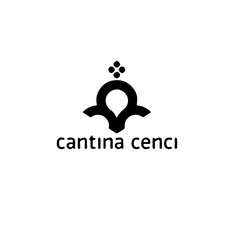
The Cenci Family has been dedicated to viticulture for over four generations, continuing to cultivate the vine with deep respect for the traditions and unique characteristics of the land once owned by the Olivetan monks. In the early 1950s, Mario—an enlightened and forward-thinking agricultural expert, and grandfather of Giovanni—selected clones of Grechetto, Sangiovese, and Malvasia from vines once cultivated by the Olivetan monks and traditionally grown intertwined with mulberry trees. He planted the first vineyards of the estate, and the wines made from those grapes were of such outstanding quality that he secured a long-term contract to supply Grechetto and Sangiovese in traditional flasks to the restaurant of a prestigious hotel in Perugia.
In 2012, following two years of renovation of the farmhouse, the new winery was inaugurated under the guidance of Mario Cenci, architect and brother of Giovanni. Thanks to cutting-edge equipment and winemaking techniques—combined with deep respect for tradition and the passionate leadership of Giovanni Cenci (viticulturist, enologist, food biotechnologist, and sommelier)—Cantina Cenci today produces wines appreciated by a niche audience of expert consumers.
The perfect balance between tradition and innovation has shaped a strong and distinctive brand identity.



























